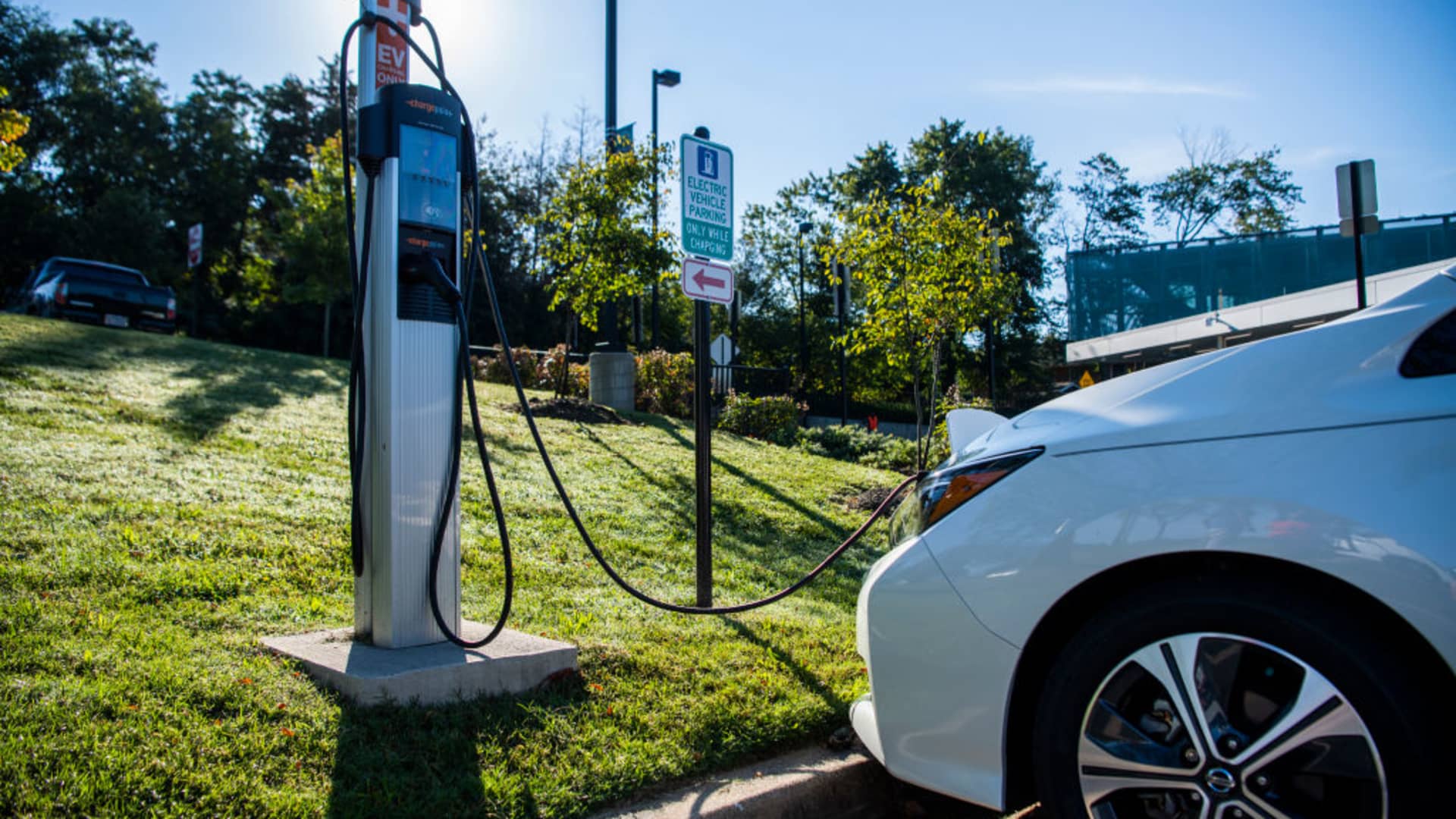
Goldman Sachs has identified an emerging opportunity in electric vehicles that’s on an “upward trend,” and revealed a key stock to play it. The trend is the outsourcing of EV manufacturing, which Goldman says will gain pace as vehicles become “ever more technology driven” and simpler to build. In a Dec. 1 report, the investment bank said outsourcing reduces the barriers to entry – saving automakers from having to build supply chains from scratch, and enabling brands to penetrate markets where they don’t have manufacturing capacity. Goldman estimates that the EV outsourcing market will grow to $36 billion in 2025 and $144 billion in 2030. “At the moment, most EVs are made in-house, but some are being outsourced,” the analysts, led by Allen Chang, wrote. “We expect the outsourcing rate in EVs to rise from 2% in 2021 to 6% in 2025E and 10% in 2030E.” The bank says this trend is set to benefit one global stock in particular: Taiwan-listed Hon Hai , otherwise known as Foxconn — the world’s largest electronics manufacturer and also Apple’s biggest iPhone supplier. Goldman upgraded Hon Hai to buy from its previous neutral rating, and gave it a base case price target of 134 Taiwan dollars ($4.40) – or nearly 28% upside. Its bull case for the firm, if EV shipments well exceed its expectations, is 200 Taiwan dollars, giving it 90% upside. The company trades as Hon Hai in mainland China and Taiwan, and Foxconn elsewhere. Why Goldman is bullish on Hon Hai Goldman says that Hon Hai could excel in “tech contents” – a growing area in EVs. It is different from its competitors because it is better able to understand consumers’ “pain point” in tech products, and is also very familiar with the tech supply chain, the bank added. “EVs carry much more technology content than traditional cars: Hon Hai has the technological capability and know-how to optimize power consumption efficiency from the design stage onward,” the analysts wrote. The bank added that Hon Hai has a global presence, with factories in 24 countries and EV production sites in the U.S., Thailand and Taiwan. That’s a key advantage, Goldman noted, as EVs are clearly much larger than PCs and smartphones and tend to be produced locally for wide distribution. “Having a global footprint fits the auto industry’s requirements for localised production, and in our view can also ameliorate some macro uncertainties such as those related to Covid, geopolitical tensions, inflation,” the bank wrote. Hon Hai has also developed its own EV software platform called Mobility in Harmony, which is similar to the Android platform for smartphones, Goldman noted. It offers a “unique advantage” for Hon Hai to capture growth in EV production, especially from smaller players. “Companies all along the tech supply chain are eyeing EV as the new growth frontier,” the bank added.
